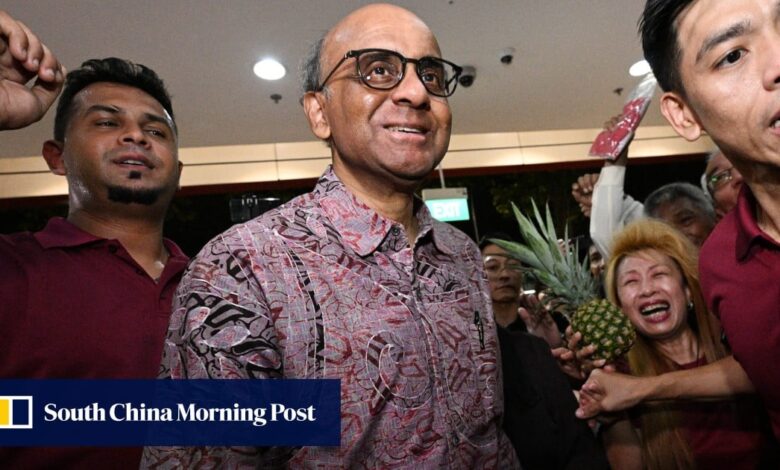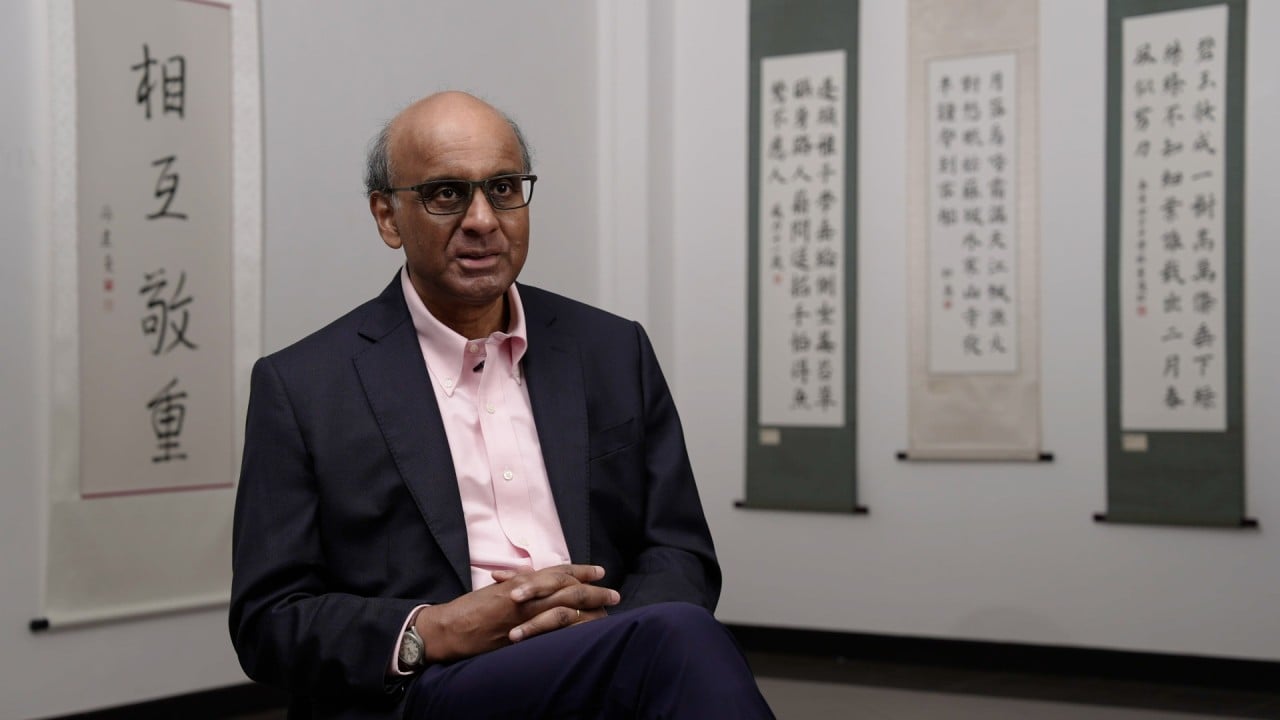Singapore’s Tharman Shanmugaratnam sworn in as ninth president, after resounding win based on ‘his merits’

[ad_1]
Tharman took the presidential affirmation before an audience of some 200 people in the republic’s colonial-era presidential palace, the Istana.
“It is indeed a good sign that in a national vote, Singaporeans have elected the candidate from a minority community as president, on his merits by an overwhelming majority,” said Lee, who is the head of the ruling People’s Action Party (PAP) that Tharman was previously part of.
Singapore’s next president: ethnic voting claims ‘disproved’ by Tharman’s victory
Singapore’s next president: ethnic voting claims ‘disproved’ by Tharman’s victory
Tharman, who is of Ceylon Tamil descent, was the clear favourite in the September 1 poll for the large ceremonial presidency, but his capture of 70.4 per cent of vote share in the contest surprised many local commentators.
There had earlier been suggestions that recent internal scandals within the PAP, as well as his ethnicity, would cause his victory margin to be cut back.
Tharman crushing victory “will help those still harbouring about the suitability of ethnic minorities for top positions to reconsider their stance”, prominent social affairs researcher Mathew Matthews wrote in a September 6 commentary in The Straits Times newspaper.
Despite strong inter-ethnic ties in the country – fostered in part by the PAP’s decades-old social mixing policies in housing and education – the conventional wisdom had been that each of the country’s ethnic groups preferred someone of their own race as a national leader.
A 2016 survey of 2,000 Singaporeans by the Institute of Policy Studies found that race mattered when it came to personal preferences on who should be prime minister or president.
In a sign of changing attitudes, a survey by polling company YouGov released this week showed that more than three in five Singaporeans were ready for a prime minister of Malay or Indian ethnicity.
People of Chinese ethnicity make up 76 per cent of Singapore’s resident population, followed by 15 per cent who are Malays and about 8 per cent who are of Indian descent.
Tharman’s support from seven out of 10 of the 2.7 million voters meant he garnered considerable support across ethnic and political lines. In recent general elections, the PAP as whole has tended to secure around 60-70 per cent of the national vote share.
A former central bank chief, 66-year-old Tharman entered politics in 2001 and subsequently led the education and finance ministries, was made deputy prime minister and in 2015 was elevated to senior minister.
He resigned from the government and the PAP in July to run in the presidential poll.
Singapore’s president is not an alternative power centre: Tharman Shanmugaratnam
Singapore’s president is not an alternative power centre: Tharman Shanmugaratnam
A PAP veteran like Tharman, the former unionist quit the party to contest 2017’s poll – the first race that was reserved for candidates of Malay ethnicity as part of the ruling party’s plan to ensure the role was rotated among the various races.
Halimah won in a walkover election after other hopefuls of Malay descent were ruled out for failing to meet stringent qualifying criteria.
Prime Minister Lee said in remarks during a farewell event for Halimah that the 68-year-old “challenged gender stereotypes and heightened awareness of the biases still faced by women”.
Tharman, who will serve a six-year term as head of state, is the country’s first president of minority background elected by universal suffrage. Five of the country’s eight presidents thus far, including incumbent Halimah, were from minority ethnic groups – though they were either appointed or won walkover contests.
The presidency has veto powers over the use of the country’s vast fiscal reserves and in the appointment of key public officials.
[ad_2]
Source link





